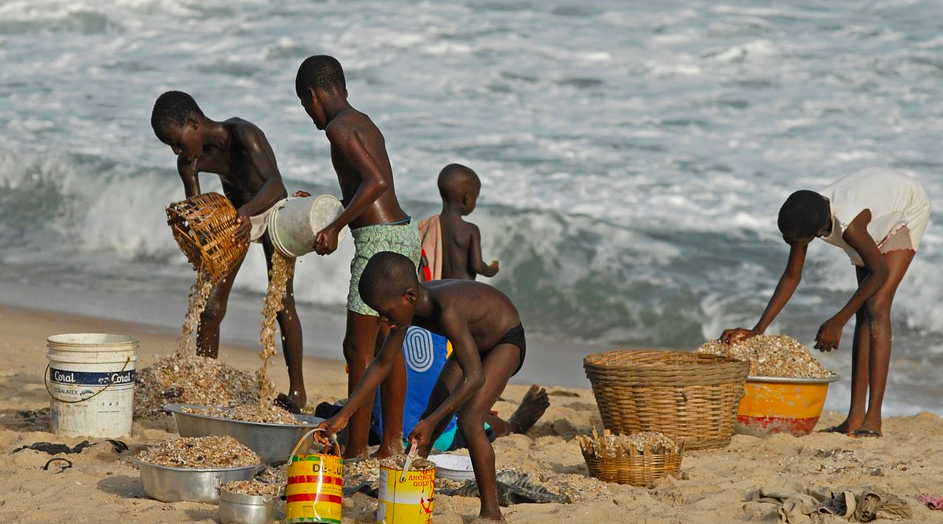We all know poverty wreaks havoc on families, but rarely do we see the corrosive effects extreme poverty has on even the strongest of bonds, such as those between parents and children.
Jake Roble was an intern for me at the University of Oxford and returned from studying child slavery in Ghana in West Africa, where he witnessed up close the devastating effects poverty had on people. These are some of the stories he told me. The names of some of the people have been changed.
A boy named Bright was sold for $10 by his mother to a fisherman at a time when cash was short. Bright was beaten, he worked seven days a week for 10 hours a day, and he didn’t like to fish. He tried to escape one time and was captured. This all took place around Lake Volta in the central part of the country. His master’s name was Kwabena.
Kofi lived with his mother and five brothers and sisters in a village near the ocean. There wasn’t much money around the house. When an uncle, Kwame, asked whether he could take Kofi to the north to fish, there was one less mouth to feed. When Kofi and his cousin, Kwesi, were out fishing one day with Kwame, a net became tangled around a submerged stump. While Kofi said it would be dangerous for either of the boys to dive in and free the net, Kwame forced Kwesi to make an attempt. Kwesi went under and never came up. When Kofi saw a large number of bubbles, he knew his cousin was tangled in the net and dead.
Mr. Adu fished with his parents as a child. At the age of 35 he started to buy children to work with him around the lake. He did not abuse the children, and parents felt comfortable bringing their children to him. One day, he was confronted by a child who had worked with him. The child, Kojo, said to Mr. Adu, “Do you see the level where I am at now? Tell me, if I were still working with you, would I be where I am today? Would I be schooling?”
These words touched Mr. Adu. He was so hurt and shocked that he begged for forgiveness. Kojo said to Mr. Adu that he would only forgive him if Mr. Adu ensured that all of those working with him went to school. When Mr. Adu gave his promise, Kojo gave his forgiveness.
These are the stories of three children who were lucky to escape slavery. Today, 21,000 children are enslaved on Lake Volta. The stories simply make me angry. All of them are about poverty. They are about abject poverty, because of which children were bought, sold or given away because there was not enough money in the home.
In Ghana and in almost all countries in the world, extreme poverty can force people into ugly situations. Lack of formal education opportunities, family instability and insecure employment can have devastating influences on many children and adults.
As I spoke with Jake, he mentioned a group called Challenging Heights, which has provided active support to over 10,000 children who were at risk of being trafficked. They also rescued more than 1,200 others who had been enslaved in Ghana. More power to those who are working to stop slavery, trafficking and abuse of people, young and old. I understand why slavery still exists. But, given the humanity that is at stake, we must all do our parts to build a more fair and just world.
I remind myself at times that we are all part of one species. How can some of us not do more when others of our species suffer so?
John Hoffmire is director of the Impact Bond Fund at Saïd Business School at Oxford University and directs the Center on Business and Poverty at the Wisconsin School of Business at UW-Madison. He runs Progress Through Business, a nonprofit group promoting economic development.
Jake Roble, Hoffmire’s colleague at Progress Through Business, did the research for this article.
Take action and join a campaign to stop child slavery Act Now
Found out what you are doing that supports slavery today Act Now





